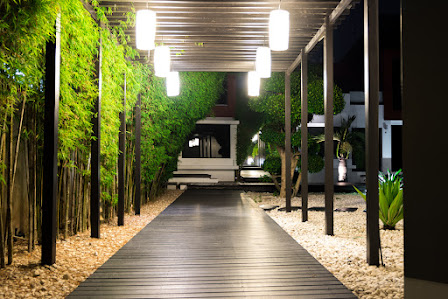A Guide to Solar-Powered Garden Path Lights
With the pandemic hitting hard and more and
more people spending time at home than ever before, it is the perfect time to
spice up your houses. From living spaces to gardens to canopies, everything can
now go through a complete metamorphosis with the help of outdoor lighting.
Installing outdoor lighting, however, can be quite a cumbersome and time-consuming process. They can also be heavy on pockets. It is a given that traditional electric lights require complex wiring and cost a fortune to be maintained. This generally comes inclusive of hours of back-breaking work and also has to hire an expensive professional Garden Designer. Most outdoor lighting options are known to offer more problems than solutions.
But worry no more as with an experienced Landscape Designer coupled up with solar-powered garden path lights, you're in for a visual treat like no other, all the while cutting off the burden of budget. Given the fact that generic garden lights can be expensive and difficult to install, solar-powered garden lights have been taking the industry by storm.
Why choose solar-powered lights?
As if a time-consuming installation and a mammoth electricity bill weren’t enough, typical light bulbs are known to easily burn out, corrode, or fail due to plenty of reasons like that of water damage. The ones that run through batteries are also in need of constant replacement. Most people are known to spend more time maintaining lights and worrying about bills than they do enjoy them.
But there is a sigh of relief now with the solar power drove garden lights. These innovative products not only help you illuminate your garden but also come hassle-free as compared to basic traditional electric options.
The innovative lights which use solar energy, are easy to install and come with their own set of instructions. This in turn makes them ideal for your home as well as your wallet. solar lights are known to self-charge during the day so they can glow all night long without the need for batteries or draining electricity.
Follow : Justin Greer




Comments
Post a Comment